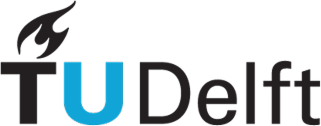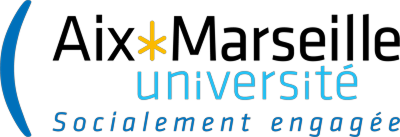About us
The Next Generation Internet (NGI) initiative is a European effort to redesign the Internet around core human values in line with the European digital rights. It aims to create a secure, interoperable, and decentralised platform ecosystem by funding open-source projects across all layers of internet infrastructure. NGI supports compliance with European legislation, advances digital commons, and fosters an innovation-driven ecosystem aligned with European digital rights and principles. NGI Localforlocal is one of the projects that fall under NGI
LocalforLocal puts the vision of the Next Generation Internet into practice by supporting local currency projects with a shared, sovereign technological foundation. Across Europe, there are around 300 such initiatives, each operating on its own technology stack. This fragmentation limits performance, scalability, and collaboration. At the same time, turning to standardized platforms often means dependence on large foreign tech providers, which undermines the principles of digital sovereignty. NGI LocalforLocal addresses this challenge by building a community and movement around local currencies, enabling them to co-develop and share open-source components. This approach empowers local initiatives to strengthen their independence from Big Tech while fostering a resilient and collaborative ecosystem.
Ambitions
- A European network of local currencies that provides mutual support, strengthens their position across Europe, and facilitates their integration into municipal policies and local economies.
- Socio-economic impact in the local regions generated by more effective local currencies
- A high-performing software stack by NGI innovators that meets the needs of European local currencies
Ambition 2 and 3 were originally envisioned in the project proposal. Throughout the development of the project, it became clear that lasting economic impact and great adopted software is only possible through the creation of a currency federation. Hence, ambition 1 was added.
Timeline
The local for local project has two main phases: software development and application. The application occurs throughout the currency ecosystem.
| Step | Start | End |
|---|---|---|
| Project initiation | December 2023 | - |
| Integration set development | December 2023 | August 2024 |
| First open call: OSS Infrastructure | April 2024 | August 2024 |
| First call closed | - | August 2024 |
| Formation Currency Ecosystem | September 2024 | November 2024 |
| Second open call: Currency Ecosystem | November 2024 | February 2025 |
| Second call closed | - | February 2025 |
| Currency Ecosystem | March 2025 | March 2026 |
| Finalizing project | March 2026 | June 2026 |
| Project end | - | June 2026 |
Consortium

Centric
Centric is a IT and software services company with a presence in multiple European countries. With a team of 3,700 professionals, Centric combines IT expertise with extensive knowledge of industry-specific processes, particularly in government, supply chain, and finance sectors. This unique blend sets Centric apart, enabling the development of tailored solutions that align with clients’ objectives. Centric operates in ten countries, serving over 3,500 clients, including millions of daily users who rely on Centric’s 200+ software solutions.

TU Delft
Delft University of Technology (TU Delft) is a prestigious Dutch institution known for its excellence in engineering, technology, and applied sciences. Located in the historic city of Delft, the university has a rich tradition of innovation and research dating back to its foundation in 1842. TU Delft is globally recognized for cutting-edge research, world-class faculty, and a diverse student body. The university is a global leader in fields such as aerospace engineering, civil engineering, and industrial design. The university’s international partnerships and interdisciplinary collaboration further reinforce its reputation as a hub for pioneering solutions to complex global challenges.

Marseille
Aix-Marseille University (AMU) is a French institution formed in 2012 by merging three renowned universities, boasting a vast academic community with over 78,000 students and 8,000 staff members. Highly regarded for its research, AMU consistently ranks among France’s top research universities, particularly excelling in health and medical sciences with affiliated hospitals and medical schools. Situated in Aix-en-Provence and Marseille, its diverse and multicultural campuses facilitate international collaboration through partnerships with universities worldwide, recognizing AMU’s status as a leading institution in France and Europe known for academic excellence and research innovation.

Kaunas
The Kaunas University of Technology (KTU) is a Lithuanian institution. Established in 1922, KTU offers a wide range of technical and scientific programs, fostering innovation and entrepreneurship among its students and faculty. Located in Kaunas, Lithuania, the university is committed to research excellence and global collaboration.